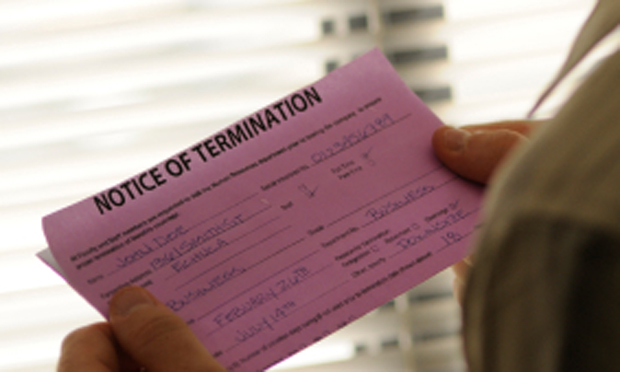
In the United States, higher education has long been seen as a way to move up the economic ladder, but recent trends have complicated the picture. Research has shown that attendance rates for women are on the rise, while those for men are falling. Education can also mean significant debt, and that can affect early career and lifestyle choices. The for-profit sector is also growing rapidly, but the outcomes of students at such institutions have been shown to be sometimes worse than at traditional nonprofit colleges.
Complicating the picture is the lingering economic slowdown, a consequence of the financial crisis, housing collapse and subsequent Great Recession. Does having an advanced degree give workers more protection against being laid off as well as greater opportunities to move ahead? A 2013 study from the Pew Center on the States, “How Much Protection Does a College Degree Afford?” examines this and other questions. The study is part of Pew’s Economic Mobility Project.
The report’s findings include:
- During the recession, all 21- to 24-year-olds experienced reduced employment and wages, but the drop was much more severe for those with less education: Before the downturn, 55% of young adults with a high school degree (HS) were employed, compared to 64% with an associate degree (AA) and 69% with a bachelor’s degree (BA). After the recession, the employment dropped to 39% for those with HS degrees (down 16%) and 53% for AA degrees (down 11%) and 62% for BA degrees (down 7%).
- In addition to having a comparatively high employment rate during the recession, those with college degrees were not accepting lesser jobs or lower wages. “Before the recession, BA graduates had more than twice as many college-level jobs as AA graduates and more than four times as many college-level jobs as HS graduates. This advantage did not deteriorate during the recession. Six percent of the HS and AA groups lost college-level jobs compared with only 3% of BA graduates.”
- Wages dropped for all those surveyed, but the decrease was less pronounced for recent graduates of four-year colleges: “The decline in weekly wages was only 5% for BA graduates, whereas the corresponding declines were as high as 12% and 10% for AA and HS graduates, respectively.”
- The proportion of college graduates able to find jobs during the recession barely changed from earlier years, while those with less education struggled: The proportions of those with HS degrees who were able to find work dropped by 8%, while 10% fewer AA graduates were able to find work.
“The findings show that the deteriorating market situation of recent college graduates, while real and troubling, is nonetheless less extreme than that experienced by less-educated groups,” the researchers conclude.
Related research: A 2012 study from Rutgers University, “Chasing the American Dream: Recent College Graduates and the Great Recession,” looked at how a nationally representative sample of college graduates who completed their degrees between 2006 and 2011 are faring in the job market. In addition, a 2012 “Comment” article in the New Yorker titled “The Cost of College” offers a broad perspective on th eissue.
Keywords: higher education, financial crisis
